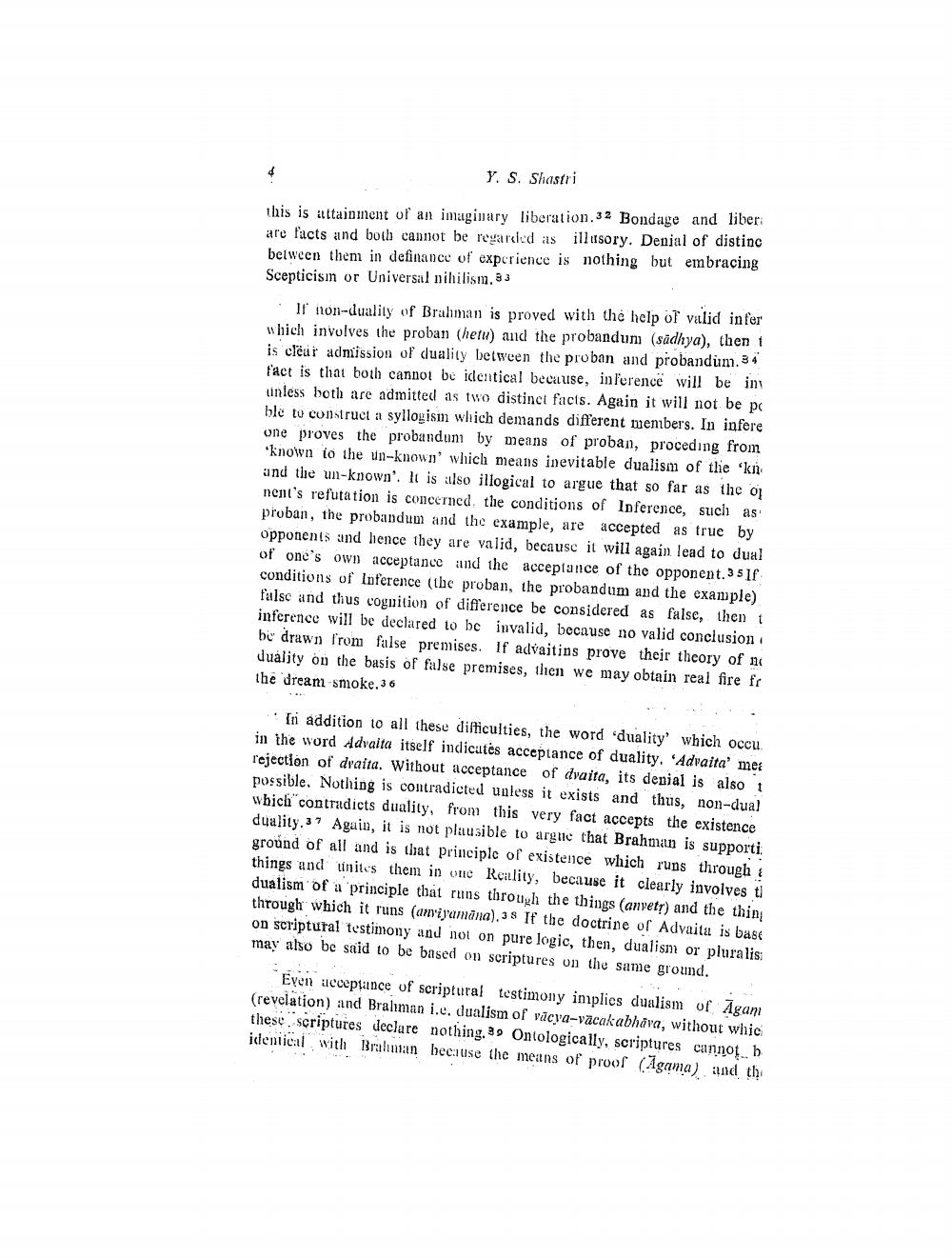________________
Y. S. Shastri
this is attainment of an imaginary liberation.32 Bondage and liberi are facts and both cannot be regarded as illusory. Denial of distinc between them in definance of experience is nothing but embracing Scepticisin or Universal nihilism. 33
Il non-duality of Brahman is proved with the help of valid in fer which involves the proban (hetu) and the probandum (sådhya), then is cleut' admission of duality between the proban and probandum. 34 t'act is that both cannot be identical because, inference will be in unless both are admitted as two distinct facts. Again it will not be po ble to construct a syllogisin which demands different members. In infere one proves the probandun by means of proban, proceding from
known to the un-known' which means inevitable dualism of the 'kn and the un-known'. It is also illogical to argue that so far as the oj nent's refutation is concerned the conditions of Inference, such as proban, the probandum and the example, are accepted as true by opponents and hence they are valid, because it will again lead to dual of one's own acceptance and the acceptance of the opponent.351f conditions of Inference (the proban, the probandum and the example) falsc and thus cognition of difference be considered as false, then t inference will be declared to be invalid, because no valid conclusion be drawn from false premises. If advaitins prove their theory of 1 duality on the basis of false premises, then we may obtain real fire fr the dream-smoke. 36
Ini addition to all these difficulties, the word duality' which occu. in the word Advaita itself indicutes acceptance of duality. 'Advaita' mes rejection of draita. Without acceptance of dvaita, its denial is also i possible. Nothing is contradicted unless it exists and thus, non-dual which contradicts duality, from this very fact accepts the existence duality. 37 Again, it is not plausible to argte that Brahman is supporti ground of all and is that principle of existence which runs through things and tunites them in one Reality, because it clearly involves ti dualism of a principle that runs through the things (anvety) and the thin through which it runs (antijamāna).38 If the doctrine of Advaita is base on scriptural testimony and not on pure logic, then, dualism or pluralisi may also be said to be based on scriptures on the same ground.
Eyen ucoeptance of scriptural testimony implies dualism of Agam (revelation) and Braliman i.c, dualism of vacya-väcakabhāva, without whic these scriptures declare nothing. 39 Ontologically, scriptures cannot b identical with Brahman because the means of proof (Agama) and the




